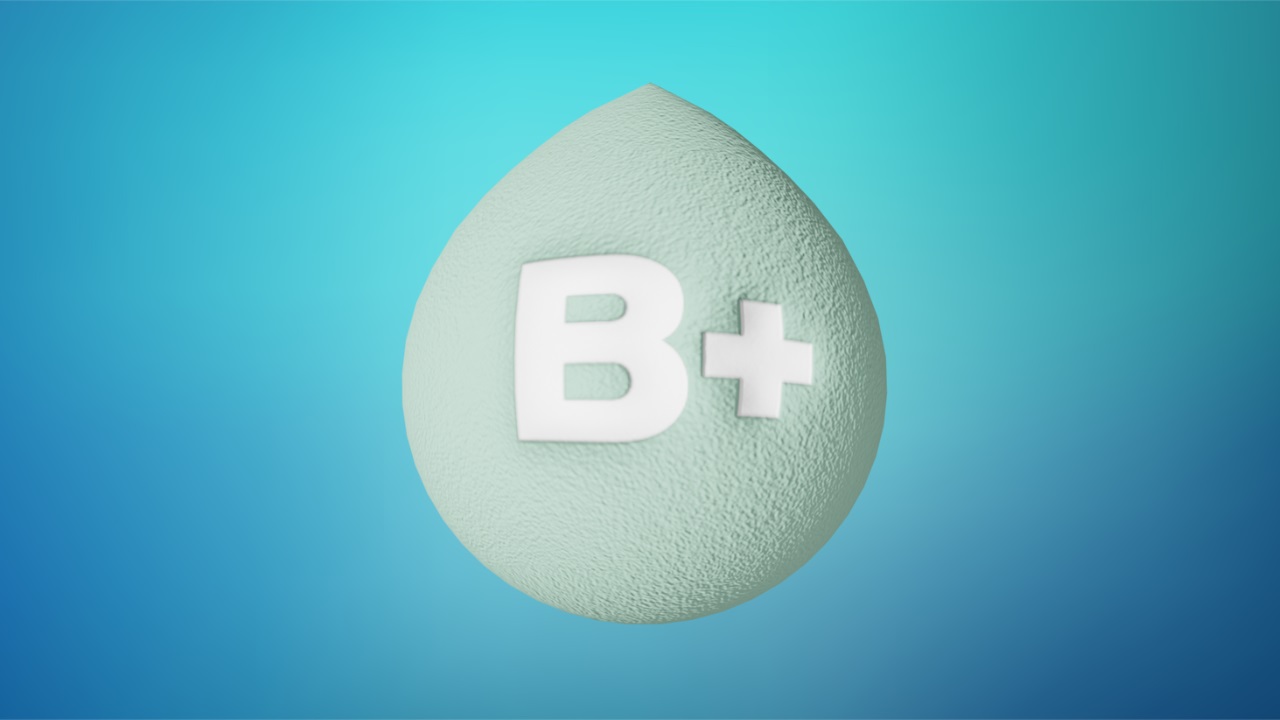
Blood type is a critical aspect of our biological makeup, influencing various aspects of our health and well-being. Among the different blood types, B+ is one of the most common and significant. Understanding the characteristics and implications of the B+ blood type can provide valuable insights into individual health and potential risks. In this article, we’ll explore 10 fascinating facts about the B+ blood type, shedding light on its unique attributes and the impact it can have on our lives. From its compatibility with other blood types to its potential influence on certain health conditions, delving into the intricacies of B+ blood type can offer a deeper understanding of human biology and genetics.
Key Takeaways:
- B+ blood type is the second most common blood type globally, making it crucial for blood transfusions and organ transplants, especially in emergency situations and medical procedures.
- Individuals with B+ blood type can receive blood from O+ and B+ blood types, and are compatible organ donors for AB+ blood type recipients, expanding the pool of potential organ donors and enhancing transplantation chances.
B+ Blood Type is the Second Most Common Blood Type in the World
B+ blood type is prevalent, with around 1 in 3 people possessing this blood type. It is the second most common blood type globally, after O+ blood type. The presence of the Rh factor in B+ blood type makes it crucial for blood transfusions and organ transplants, as it can be received by individuals with B+ and AB+ blood types. This makes B+ blood type particularly valuable in emergency situations and medical procedures.
B+ Blood Type Individuals Have Specific Antigens on Their Red Blood Cells
Individuals with B+ blood type have B antigens and Rh factor on their red blood cells. The B antigen is a protein that triggers the body’s immune system to produce antibodies if it detects foreign antigens. The presence of the Rh factor, also known as RhD antigen, is a distinguishing feature of B+ blood type. It determines the positive (+) in the blood type and is vital for blood compatibility during transfusions and pregnancies.
B+ Blood Type Can Receive Blood from O+ and B+ Blood Types
Due to the absence of A antigens in B+ blood type, individuals with this blood type can receive blood from O+ and B+ blood types. This flexibility in blood transfusions is beneficial in emergency situations when specific blood types may not be readily available. However, individuals with B+ blood type can only donate blood to other individuals with B+ and AB+ blood types due to the presence of the B antigen.
B+ Blood Type Is Linked to Specific Health Risks and Benefits
Research suggests that individuals with B+ blood type may have a higher susceptibility to certain health conditions, such as heart disease and certain types of cancer. Conversely, they may have a lower risk of developing severe malaria compared to individuals with other blood types. Understanding these associations can aid in personalized healthcare and disease prevention strategies based on an individual’s blood type.
B+ Blood Type Individuals Are Compatible Organ Donors for AB+ Blood Type Recipients
Individuals with B+ blood type can donate organs to recipients with AB+ blood type due to the compatibility of the B+ blood type with the AB+ blood type. This compatibility expands the pool of potential organ donors for individuals with AB+ blood type, potentially reducing wait times for life-saving organ transplants and enhancing the chances of successful transplantation.
B+ Blood Type May Influence Dietary Recommendations
Some studies suggest that blood type, including B+ blood type, may influence an individual’s response to certain foods and nutrients. While further research is needed to establish conclusive links, understanding the potential impact of blood type on dietary requirements can contribute to personalized nutrition plans and optimize overall health and well-being for individuals with B+ blood type.
B+ Blood Type Has Cultural Significance in Some Societies
In certain cultures and regions, blood type, including B+ blood type, is believed to influence personality traits and compatibility in relationships. This belief has led to the development of blood type personality theories, where individuals with B+ blood type may be associated with specific characteristics and behaviors. While these beliefs are not scientifically proven, they hold cultural significance in various communities.
B+ Blood Type Is Inherited According to Mendelian Genetics
The inheritance of blood type, including B+ blood type, follows the principles of Mendelian genetics. If both parents have B+ blood type or carry the B and Rh factors, their offspring are likely to inherit the B+ blood type. Understanding the genetic basis of blood type inheritance is essential in medical genetics and family health history assessments.
B+ Blood Type Is Associated with Diverse Population Groups
B+ blood type is found in diverse population groups worldwide, reflecting the genetic diversity of human populations. This blood type’s prevalence in various ethnicities and regions underscores the significance of blood type diversity in healthcare and medical interventions, emphasizing the need for broad and inclusive blood donation initiatives to meet the diverse needs of different communities.
B+ Blood Type Plays a Vital Role in Blood Donation and Transfusion Services
Due to its prevalence and compatibility with other blood types, B+ blood type plays a crucial role in blood donation and transfusion services. Blood banks and healthcare facilities rely on B+ blood type donations to meet the demand for compatible blood units, especially during emergencies and medical treatments. The contribution of B+ blood type donors is essential in sustaining blood supply and supporting patient care.
Conclusion
If you have B+ blood type, you are part of a unique group that possesses both B antigen and Rh factor. Understanding your blood type can be crucial for your health, as it may affect your susceptibility to certain illnesses and your compatibility for blood transfusions. Knowing your blood type can also provide insights into your ancestry and help you make informed decisions about your diet and lifestyle. While your blood type does not solely determine your personality or health, it can offer valuable information that may contribute to your overall well-being. Embracing a healthy lifestyle, maintaining regular check-ups, and being aware of your blood type’s implications can all contribute to a healthier and more informed life.
FAQs
What does it mean to have B+ blood type?
Having B+ blood type means that you have B antigens and Rh factor in your blood. This blood type is important for blood transfusions and can also provide insight into your susceptibility to certain illnesses.
Can B+ individuals receive blood from any blood type?
B+ individuals can receive blood from B+ and O+ donors. However, they can only donate blood to other B+ and AB+ individuals.
Are there specific dietary recommendations for B+ blood type?
Some believe that individuals with B+ blood type may benefit from a diet rich in certain foods such as meat, dairy, and vegetables. However, scientific evidence supporting blood type diets is limited.
Does B+ blood type have any impact on personality?
There is no scientific evidence to support the correlation between blood type and personality traits. While some cultures believe in blood type personality theories, it is not scientifically proven.
Is B+ blood type common?
B+ is one of the most common blood types, with a significant percentage of the population belonging to this group.
Was this page helpful?
Our commitment to delivering trustworthy and engaging content is at the heart of what we do. Each fact on our site is contributed by real users like you, bringing a wealth of diverse insights and information. To ensure the highest standards of accuracy and reliability, our dedicated editors meticulously review each submission. This process guarantees that the facts we share are not only fascinating but also credible. Trust in our commitment to quality and authenticity as you explore and learn with us.

